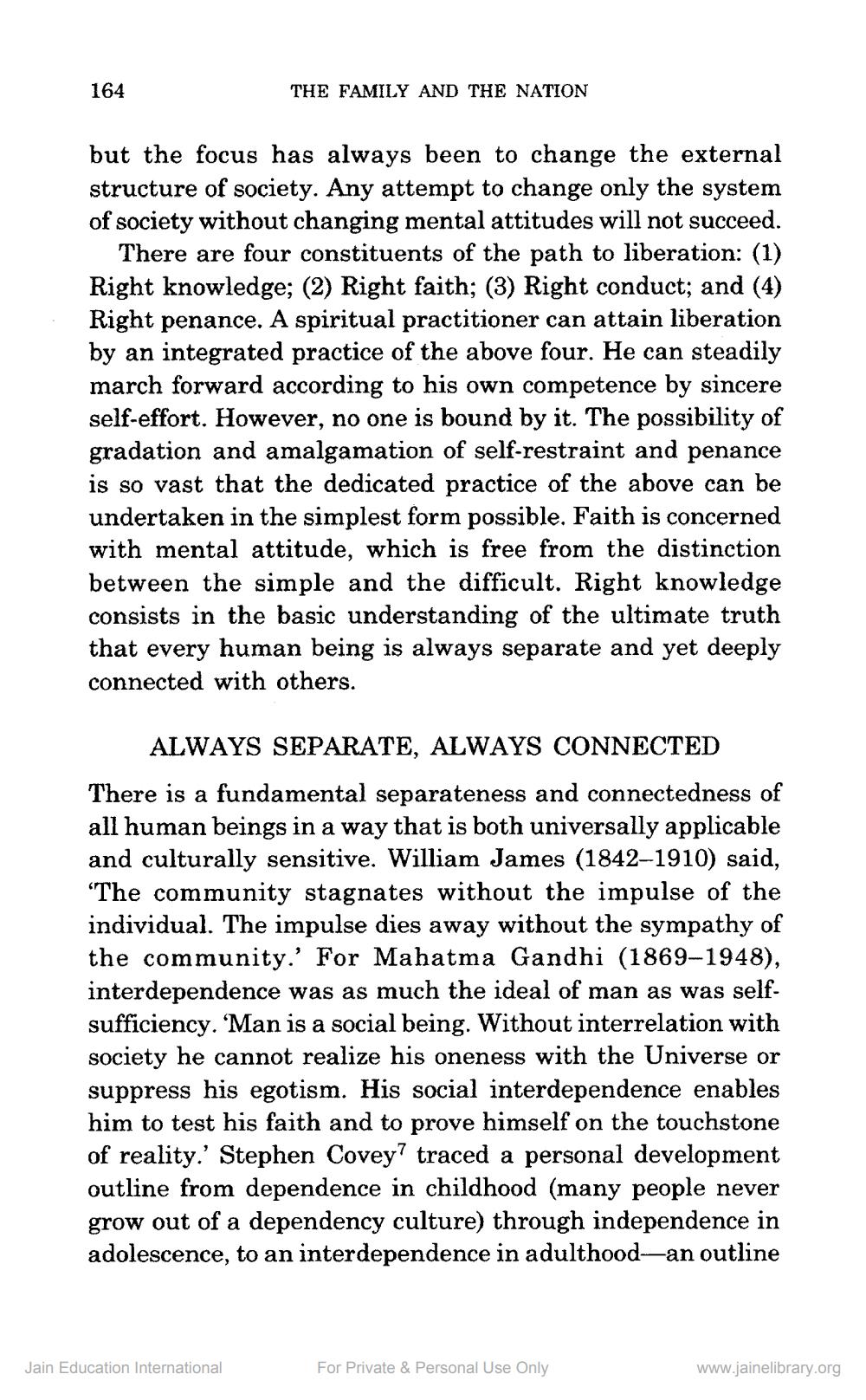________________
164
THE FAMILY AND THE NATION
but the focus has always been to change the external structure of society. Any attempt to change only the system of society without changing mental attitudes will not succeed.
There are four constituents of the path to liberation: (1) Right knowledge; (2) Right faith; (3) Right conduct; and (4) Right penance. A spiritual practitioner can attain liberation by an integrated practice of the above four. He can steadily march forward according to his own competence by sincere self-effort. However, no one is bound by it. The possibility of gradation and amalgamation of self-restraint and penance is so vast that the dedicated practice of the above can be undertaken in the simplest form possible. Faith is concerned with mental attitude, which is free from the distinction between the simple and the difficult. Right knowledge consists in the basic understanding of the ultimate truth that every human being is always separate and yet deeply connected with others.
ALWAYS SEPARATE, ALWAYS CONNECTED There is a fundamental separateness and connectedness of all human beings in a way that is both universally applicable and culturally sensitive. William James (1842–1910) said, "The community stagnates without the impulse of the individual. The impulse dies away without the sympathy of the community.' For Mahatma Gandhi (1869–1948), interdependence was as much the ideal of man as was selfsufficiency. “Man is a social being. Without interrelation with society he cannot realize his oneness with the Universe or suppress his egotism. His social interdependence enables him to test his faith and to prove himself on the touchstone of reality.' Stephen Covey? traced a personal development outline from dependence in childhood (many people never grow out of a dependency culture) through independence in adolescence, to an interdependence in adulthood—an outline
Jain Education International
For Private & Personal Use Only
www.jainelibrary.org




